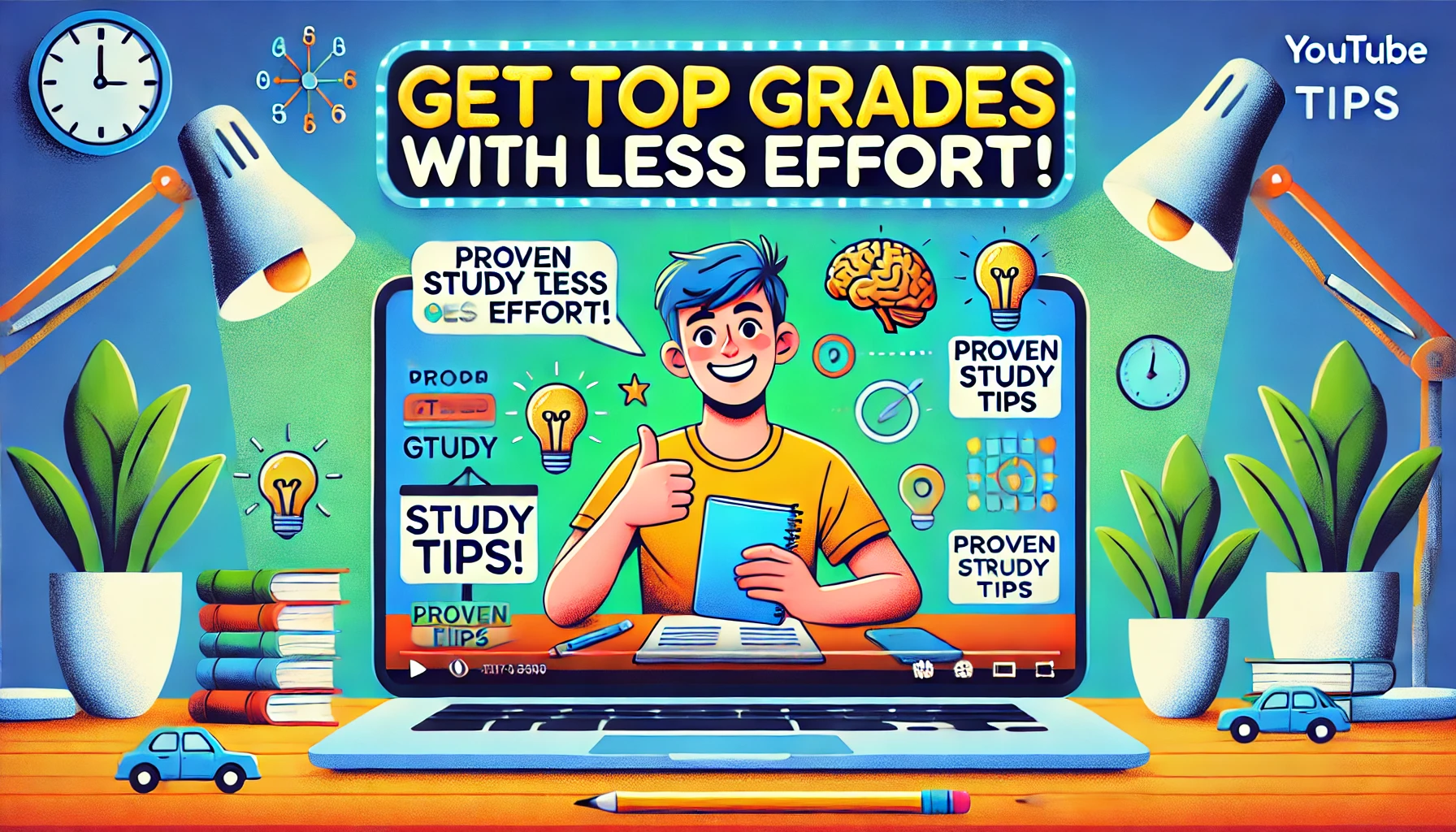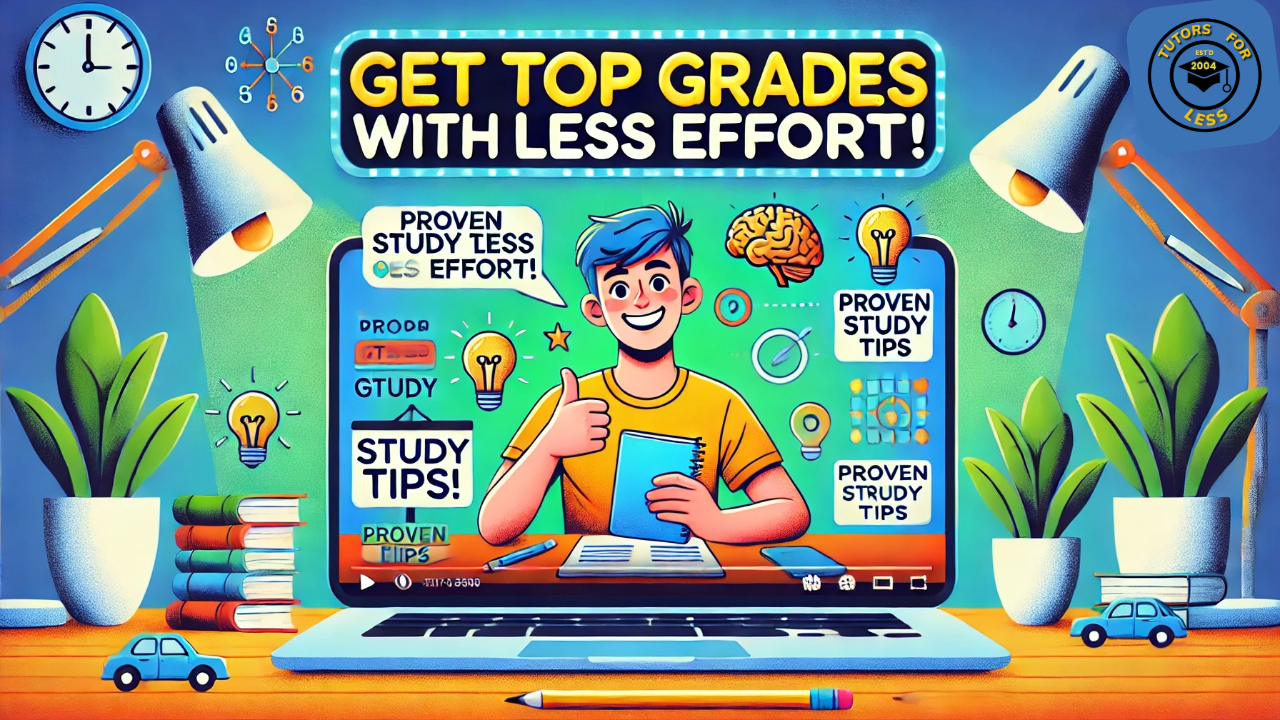Maximize Your Study Time: Essential Tips for Success

Studying effectively is key to academic success, but it doesn’t have to mean spending countless hours in front of your books. With the right techniques, you can maximize your study time, retain more information, and reduce stress. Whether you’re preparing for exams, working on assignments, or just looking to improve your overall academic performance, these study tips are here to help you achieve your goals efficiently.
1. Active Learning: Engage with the Material
One of the most effective ways to study is through active learning. This means going beyond passive reading or highlighting text and engaging with the material. Try summarizing the content in your own words, teaching the concepts to someone else, or asking yourself questions about what you’ve learned. This deeper engagement helps reinforce your understanding and makes it easier to recall information later.
2. Spaced Repetition: Boost Your Memory
Instead of cramming all your study into one long session, break it up and review the material over several days or weeks. This technique, known as spaced repetition, is scientifically proven to improve memory retention. By spacing out your study sessions, you allow your brain to consolidate information more effectively, which helps you remember it longer.
3. Use the Pomodoro Technique: Stay Focused and Avoid Burnout
The Pomodoro Technique involves studying in short, focused bursts, typically 25 minutes, followed by a short break. This method helps maintain concentration and prevents burnout, making your study time more productive. Regular breaks are essential for keeping your mind fresh and avoiding fatigue.
4. Minimize Distractions: Create a Focused Study Environment
A key factor in effective studying is minimizing distractions. Find a quiet place to study, turn off notifications on your phone, and use apps that block distracting websites. Check out our guide on creating a distraction-free study environment for more tips on staying focused. A dedicated, distraction-free study environment helps you stay focused and retain information better.
5. Practice Retrieval: Test Your Knowledge
One of the best ways to reinforce your learning is through practice retrieval—actively recalling information without looking at your notes. This could involve using flashcards, taking practice tests, or explaining the material to someone else. By testing yourself regularly, you can identify areas where you need more practice and solidify your understanding of the content.
6. Maintain Healthy Habits: Sleep, Exercise, and Nutrition
Your brain needs proper care to function at its best. Make sure you’re getting enough sleep, eating a balanced diet, and exercising regularly. Check out our post on healthy study habits for more information on how lifestyle choices impact learning. Healthy habits support cognitive function and improve your ability to concentrate and retain information, making your study sessions more effective.
7. Debunking Study Myths: Focus on What Works
There are many myths about the best ways to study, like pulling all-nighters or reading notes repeatedly. These methods are often less effective than they seem. Focus on proven strategies, like those outlined above, to make the most of your study time and get the best results with the least effort.
For a deeper dive into effective study methods, read our comprehensive guide on how to study smarter, not harder. watch our YouTube video below that explains all the items on this post.
By implementing these study tips, you can optimize your study sessions, reduce stress, and achieve your academic goals more efficiently. Remember, it’s not about the number of hours you spend studying but how effectively you use that time. Happy studying!
References
- Active Learning: Edutopia. (n.d.). What is active learning and why it works. Retrieved from Edutopia
- Spaced Repetition: Carey, B. (2016). Boost your memory with spaced repetition. Scientific American. Retrieved from Scientific American
- Pomodoro Technique: Murphy, M. (2020). Using the Pomodoro Technique to improve your productivity. Forbes. Retrieved from Forbes
- Practice Retrieval: Adams, J. (2018). Why retrieval practice is the best way to learn. Psychology Today. Retrieved from Psychology Today


